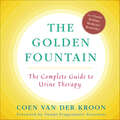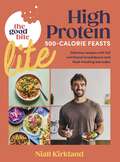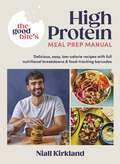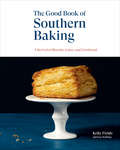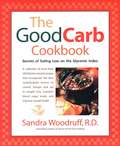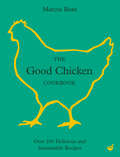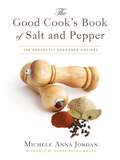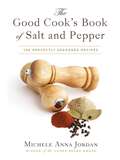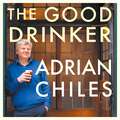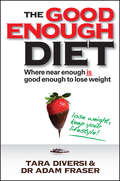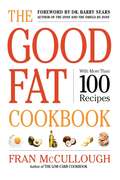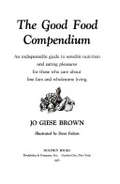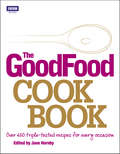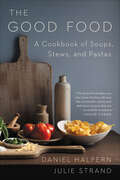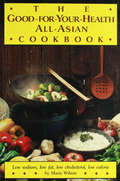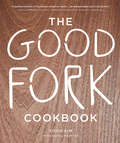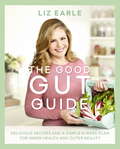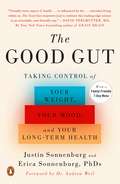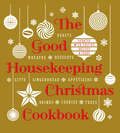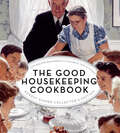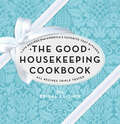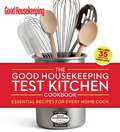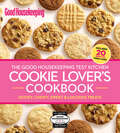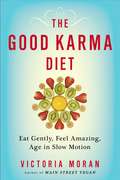- Table View
- List View
The Golden Fountain: The Complete Guide to Urine Therapy
by Coen van der Kroon“The most complete book on Urine Therapy to be published” -from the Foreword by Swami Pragyamurti Saraswati Practiced for thousands of years in the East, urine therapy – the application of your body’s own urine as an agent for the promotion and management of good health – has gained popularity in the West as more people seek effective, affordable and holistic alternatives to modern medicines. Dutch auto-urine expert Coen Van der Kroon first encountered urine therapy when he cut his foot at an ashram in the mountains of India. Conventional antiseptics and treatments did nothing for the injury, and the infection steadily worsened until he was advised to wrap his foot in a cloth soaked in his own urine. To his great relief the treatment worked; the wound healed rapidly. This event served as an awakening for him, beginning his journey of learning and sharing the positive health benefits of urine therapy. Van der Kroon combines his years of research with a wealth of personal experience to document the history and implementation of urine therapy. He introduces and explains its fundamental principles, explores its history, lists many practical applications, and documents recent research and literature on the subject. Remarkably, the medicinal properties of urine have been shown to work as a natural remedy for a variety of bodily ills ranging from skin conditions to the common cold to cancer. Complete with an extensive bibliography and numerous illustrations, this user-friendly guide is a thorough primer for the curious, and an informative resource for those already versed in this practice and its benefits.
The Good Bite Lite: 500-Calorie feasts, delicious recipes with full nutritional breakdowns and food-tracking barcodes
by Niall Kirkland The Good BiteDISCOVER TASTY LOW-CALORIE, HIGH-PROTEIN FEASTS TO START YOUR NEW YEAR---Harness the power of protein, with 80 simple and delicious recipes, all under 500 calories. Join Niall Kirkland and The Good Bite to discover vibrant, flavourful food that feels deliciously indulgent while supporting your fitness or weight loss journey. With a focus on big flavours, fresh ingredients and meals that will leave you feeling happy and satisfied, these are The Good Bite’s signature high-protein recipes, just a little bit lighter. Fill your week with:- Chilli Oil Scrambled Eggs- Hot Honey Chicken Tenders Salad- Sweet Chilli Tofu- Baked Cajun Cod- Firecracker Crispy Beef Rice Bowls- Black Bean Chilli with Creamy Guac and Wild Rice- Honey Jerk Shrimp Bowl- Peri Peri Steak & Chips- Meal Prep Salt & Pepper Chicken & Potatoes- Marry Me Chicken Pasta- Peanut Butter Blueberry Baked Oat BarsAnd so much moreTruly love the food you eat, change your diet for good and get the lasting results you really want with The Good Bite Lite.
The Good Bite’s High Protein Meal Prep Manual: Delicious, easy low-calorie recipes with full nutritional breakdowns & food-tracking barcodes
by Niall Kirkland The Good BiteTHE INSTANT SUNDAY TIMES BESTSELLEROrder your copy of The Good Bite's High Protein, Meal Prep Manual now, for food as tasty as it is good for you.Niall Kirkland, founder of The Good Bite, is on a mission to bridge the gap between healthy and delicious. In this book, he shares 80 calorie-counted, meal-prep, air fryer and slow cooker recipes - with a photo for every one - that will help you fill your fridge with mouth-watering, high-protein dishes that take the stress out of mealtimes.PB&J Protein French ToastPeri-peri Rice Bake with Grilled CornSticky Korean Popcorn ChickenSlow Cooker Sweet Potato Shepherd’s PieCreamy Peanut Noodles with PrawnsHot Honey Halloumi Pittas with Harissa-Lime MayoCreamy Tuscan Butter BeansCookie Dough BitesWith chapters covering breakfast, lunch, dinner, desserts and snacks – as well as essential advice on calculating your ideal protein intake, full nutritional breakdowns and barcodes that feed directly into your food-tracking app for each recipe – this is the ultimate resource for anyone looking to harness the power of protein. Inside you’ll find delicious, nourishing meals packed with flavour, to keep you eating strong all week long.
The Good Book of Southern Baking: A Revival of Biscuits, Cakes, and Cornbread
by Kelly Fields Kate Heddings100+ beloved recipes proving that Southern baking is American baking—from the James Beard Award-winning chef and owner of the New Orleans bakery Willa Jean. &“Kelly Fields bakes with the soul of a grandma, the curiosity of a student, and the skill of a master.&”—Vivian Howard, author of Deep Run Roots: Stories and Recipes from My Corner of the South Celebrated pastry chef Kelly Fields has spent decades figuring out what makes the absolute best biscuits, cornbread, butterscotch pudding, peach pie, and, well, every baked good in the Southern repertoire. Here, in her first book, Fields brings you into her kitchen, generously sharing her boundless expertise and ingenious ideas. With more than one hundred recipes for quick breads, muffins, biscuits, cookies and bars, puddings and custards, cobblers, crisps, galettes, pies, tarts, and cakes—including dozens of variations on beloved standards—this is the new bible for Southern baking.
The Good Carb Cookbook
by Sandra WoodruffA complete guide and cookbook to selecting and using the best carbohydrates to lose weight, maintain blood sugar levels, and improve overall health. Not all carbs are created equal. In fact, the latest dietary research shows that different carbohydrates have varying effects on the body, depending on the rate at which they raise blood sugar levels--also known as a food's glycemic index (GI). Choosing a balance of foods that are low on the GI will speed weight loss and control diabetes, insulin resistance, and cardiovascular disease. In The Good Carb Cookbook, Sandra Woodruff demystifies the carbohydrate confusion by explaining the real differences among carbohydrates (baked potatoes are high on the index, while sweet potatoes are low), and shares her secrets for eating low on the index. The book includes an invaluable table with hundreds of common foods and their glycemic index rating; more than two hundred recipes to get people cooking and eating low on the index; and tips to modify high-glycemic family favorites with low-glycemic ingredients, lose weight, maintain blood sugar, and achieve optimal health.
The Good Chicken Cookbook: Over 100 Delicious and Sustainable Recipes
by Marcus BeanThis is the go-to cookbook for sustainable chicken recipes, with advice on using the whole bird, preparation techniques and tips on chicken care.Chicken is a superb meat. Tender and full of flavour, it is fantastically versatile, as well as a cheaper and healthier alternative to pork, beef and lamb. However, because of its budget-friendly price tag, it has also become associated with the worst in modern farming: poor conditions, chickens being injected with salt-water and antibiotics, and meat contaminated with salmonella.But it doesn&’t have to be like this. This cookbook reclaims chicken, showing how it can be incorporated into good, sustainable cooking. Marcus Bean, a farm-based TV chef and presenter, has made it his mission to take a fresh look at the chicken, from coop to kitchen.Marcus gives you innovative and inspiring dishes that will also help you to reduce your impact on the planet, from lemongrass and thyme Scotch eggs to chicken tostada. To make the book easy to use, it is structured in response to the needs of our daily lives, so you will find a section with quick weekday meals, one with more leisurely recipes for the weekend, as well as a section for celebrations and occasions when you need a showstopper dish. The book includes:Over 100 recipes, many featuring parts of the chicken less familiar in the domestic kitchen, like the liver or skinGuidance on making use of every part of the chickenAdvice on mastering preparation techniques such as jointing and spatchcockingChicken care and rearing wisdomPerfect for the conscious home cook or chicken smallholders, this book is a one-stop shop for delicious and sustainable chicken recipes.
The Good Cook's Book of Salt and Pepper
by Michele Anna Jordan"It amazes me that so little has been written about the two foods we eat most often. Here is a book that tells us about these two ingredients-one essential to life, the other the flavor of almost everything we eat. . . . A book like Ms. Jordan's is long overdue." -James PetersonSalt is indispensable. Pepper is superfluous. Michelle Anna Jordan guides you through this cookbook where "saltandpepper" is a one-word dictionary term in her kitchen vocabulary. You'll learn all there is to know about salt and pepper, even so far as to where and how they grow. This exquisite cookbook will go over the necessities of salt, and the luxury of pepper via 135 seasoned recipes. Serve your friends, family, and party guests with delicious recipes and first-hand facts behind the science of one of the culinary world's dynamic duos.The Good Cook's Book of Salt and Pepper separates itself from other competitors by offering scientific facts, a healthier exposure to salt and pepper, and some interesting worldwide trivia. Did you know that India produces the leading amount of pepper and that the United States is its largest consumer? Did you know that shrimp and small crustaceans cooked with spices are common throughout Asia and South America? And that salt is an essential ingredient in coaxing out the flavor of nearly all grains?Recipes in this book include:Au poivre rouge steakThree-peppercorn breadRoast pork with black pepperSeafood roated with rock saltPepper-crusted pizza with porcini, fontina, and sage
The Good Cook's Book of Salt and Pepper: Achieving Seasoned Delight, with more than 150 recipes
by Michele Anna Jordan Liza Gershman"It amazes me that so little has been written about the two foods we eat most often. Here is a book that tells us about these two ingredients-one essential to life, the other the flavor of almost everything we eat. . . . A book like Ms. Jordan’s is long overdue.” -James PetersonSalt is indispensable. Pepper is superfluous. Michelle Anna Jordan guides you through this cookbook where "saltandpepper” is a one-word dictionary term in her kitchen vocabulary. You’ll learn all there is to know about salt and pepper, even so far as to where and how they grow. This exquisite cookbook will go over the necessities of salt, and the luxury of pepper via 135 seasoned recipes. Serve your friends, family, and party guests with delicious recipes and first-hand facts behind the science of one of the culinary world’s dynamic duos.The Good Cook’s Book of Salt and Pepper separates itself from other competitors by offering scientific facts, a healthier exposure to salt and pepper, and some interesting worldwide trivia. Did you know that India produces the leading amount of pepper and that the United States is its largest consumer? Did you know that shrimp and small crustaceans cooked with spices are common throughout Asia and South America? And that salt is an essential ingredient in coaxing out the flavor of nearly all grains?Recipes in this book include: Au poivre rouge steak Three-peppercorn bread Roast pork with black pepper Seafood roated with rock salt Pepper-crusted pizza with porcini, fontina, and sageSkyhorse Publishing, along with our Good Books and Arcade imprints, is proud to publish a broad range of cookbooks, including books on juicing, grilling, baking, frying, home brewing and winemaking, slow cookers, and cast iron cooking. We’ve been successful with books on gluten-free cooking, vegetarian and vegan cooking, paleo, raw foods, and more. Our list includes French cooking, Swedish cooking, Austrian and German cooking, Cajun cooking, as well as books on jerky, canning and preserving, peanut butter, meatballs, oil and vinegar, bone broth, and more. While not every title we publish becomes a New York Times bestseller or a national bestseller, we are committed to books on subjects that are sometimes overlooked and to authors whose work might not otherwise find a home.
The Good Drinker: How I Learned to Love Drinking Less
by Adrian Chiles'I've occasionally been asked why it is that I need to go for a drink before watching the Albion play. I've always answered with something lame, along the lines of, "You wanna try watching us sober" ... where does this urge come from? I've raced off to games hours early to give me a chance to drink a lot of beer in a relatively short time ... the craic is good, usually. Sometimes it isn't, Occasionally it's all rather boring. But I always make the effort. Why? Well..'The popular broadcaster and columnist sets out to discover the unsung pleasures of drinking in moderation.The recommended alcohol limit is 14 units a week. Adrian Chiles used to put away almost 100. Ever since he was a teenager, drinking was his idea of a good time - and not just his, but seemingly the whole nation's. Still, it wasn't very good for him: the doctor made that clear. If you lined them up, Adrian must have knocked back threemiles of drinks. How many of them had he genuinely wanted? A mile?There's an awful lot of advice out there on how to quit booze completely. If you just want to drink a bit less, the pickings are slim. Yet while the alcohol industry depends on a minority of problem drinkers, the majority really do enjoy in moderation. What's their secret? Join the inimitable Chiles as he sets out around Britain and plumbs his only slightly fuzzy memories of a lifetime in pubs in a quest to find the good drinker within.
The Good Enough Diet: Where Near Enough Is Good Enough To Lose Weight
by DiversiToo busy for endless calorie counting or specialised diets that require excessive preparation? Struggling to schedule in gym sessions or finding it hard to refuse that second piece of cake? Whatever your reason, The Good Enough Diet delivers great results for people who want to be healthy but don't have time to be obsessive. This breakthrough book by health industry experts dietitian Tara Diversi and exercise physiologist Dr Adam Fraser provides a series of easy-to-implement strategies that will deliver amazing weight-loss results without turning your lifestyle upside down! In this book you will learn: why low-fat food can make you fat why taking the stairs can make you put on weight why health professionals don't follow the advice they give you why near enough really is good enough to lose weight! Stop feeling guilty and punishing yourself for not being perfect and learn the real secret to weight-loss success.
The Good Fat Cookbook
by Barry Sears Fran McculloughGood news. The good fats -- butter, chocolate, eggs, coconut, olive oil, avocado, fish and shellfish, among many other favorites -- are not only delicious, they're good for your brain, heart, immune system, hormones, skin, memory, and emotional well-being. Whatever you think you know about fat, forget it. After two decades of the low-fat diet trend, Americans are fatter -- and less healthy -- than ever before. For many, those torturous no-fat, low-fat diets are outright health hazards, contributing to everything from premature wrinkling and depression to hormone dysfunction and even cancer. In The Good Fat Cookbook, best-selling author Fran McCullough delivers the delicious news. Here is powerful evidence that not only have we been sold a bill of low-fat goods, but the foods we love to eat -- real butter, chocolate, coconut, whole milk and cream, nuts, avocados, cold-water fish, red meat, olive oil, bacon and eggs -- are actually good for us. Not only does fat not make you fat, the good fats slow the effects of aging, improve mood and memory, boost the immune system, and protect against catastrophic disease such as stroke and cancer. And the most surprising news of all: the right fats are great tools for weight loss -- they make you fuller faster and for longer and jump-start your metabolism. McCullough debunks fat myths and demystifies cutting-edge science, while exploring all aspects of the fat phenomenon, fork in hand. More than a hundred simple recipes -- Salmon Chowder, Tuna with Rice, Deep-Fried Coconut Shrimp, Parsley Salad with Avocado, Chicken with Olives and Oranges, Grilled Cheese with Oregano, Crisp Coconut Waffles, Avocado Cheesecake, and Wall-to-Wall Walnut Brownies -- put the good fats back on your table, and McCullough offers spirited advice on everything from the best cooking oils and tastiest canned tuna to nutritional supplements and testing for your fatty-acid profile. Her hundreds of thousands of low-carb fans will be overjoyed to see that most of the recipes here are perfect for them as well. Fran McCullough is the author of the best-selling The Low-Carb Cookbook and Living Low-Carb. She won a James Beard Award for Great Food Without Fuss and, since 1999, has been the editor of the annual Best American Recipes anthology series. A graduate of Stanford University, McCullough began her career as an editor, discovering Sylvia Plath, Pulitzer Prize winner N. Scott Momaday, and National Book Award winner Robert Bly as well as Richard Ford. She also edited and published a distinguished list of cookbook authors, including Diana Kennedy, Paula Wolfert, and Deborah Madison. Her website address is www.blackdirt.net/lowcarb
The Good Food Compendium
by Jo Giese BrownBrown's nutrition-oriented compendium of information, advice, and recipes covers a range of topics from vegetable selection to criteria for nursing homes, and lists a number of variously helpful further resources from wholesale produce markets to children's books that mention food or eating.
The Good Food Cook Book: Over 650 triple-tested recipes for every occasion
by Good Food GuidesIn this authoritative cookbook from Britain's favourite cookery magazine, you will discover over 650 recipes divided by ingredient and occasion to help you find the perfect recipe with ease. But this is more than just a recipe collection - this book also includes Good Food's expert knowledge of ingredients and cooking hints and tips, to make it an invaluable source of inspiration and advice. This is an essential reference guide, including easy-to-follow instructions on topics such as how to cook different cuts of meat, knife skills and how to entertain without stress. There are also step-by-step masterclasses in techniques such as preparing squid, making fresh ravioli from scratch and making bread and pastry. With hundreds of recipes for everyday meals as well as weekend feasts, for when you have a little more time to spend in the kitchen, sections focused on making special occasions stress-free, a whole chapter on Christmas cooking and a chapter dedicated to feeding crowds all with step-by-step methods, nutritional breakdowns and full-colour photography, The Good Food Cook Book is the perfect gift and a book to treasure and return to, year after year.
The Good Food: A Cookbook of Soups, Stews, and Pastas
by Daniel Halpern Julie StrandAn enduringly popular collection of almost 200 beloved dishes from around the world featuring classic and easy-to-cook recipes.What is as satisfying on a cold winter’s night as a hearty stew? Or as refreshing on a hot summer’s day as a cold soup? And who can ever resist a bowl of pasta? When it was first published in 1985, The Good Food was one of the first collections of recipes devoted to the celebration of the best-loved and most satisfying essentials of casual cuisine, and more than thirty years later, it has remained a classic in its genre.Drawing on the diverse cooking traditions of the Americas, Italy, France, India, Morocco, and the Middle East, Daniel Halpern and Julie Strand bring together almost two hundred recipes, including not only the quintessential examples of each cuisine, but also unusual dishes that provide surprising gastronomic rewards. Spanning the globe, these staples of international cuisine include gazpacho, jambalaya, and spaghetti alla bolognese, as well as an abundance of unexpected delights, such as Coriander and Lemon Soup; Lamb Stew with Eggplant, Saffron, and Ginger; and Penne with Black Olive Purée and Ricotta. The Good Food puts the emphasis where it belongs: on the pleasure of preparing—and eating—excellent and timeless dishes.
The Good For Your Health All Asian Cookbook
by Marie WilsonThe Good for Your Health All Asian Cookbook presents over 220 exciting Asian dishes - from eleven Asian countries, from Japan to Pakistan - that are low in fat and cholesterol, low in salt, and low in calories. Very little oil or fat is used in the recipes, and salt and MSG have been wholly eliminated. Instead, generous use is made of Asia's miracles of flavor and aroma: garlic and fresh ginger root to maintain full-bodied richness; spices and herbs, to add zest; rice wines, lemon juice and vinegar, to provide the sultry pungency of sweet-and-sour dishes; and peppers and chiles, for those who like a little more "heat" in their lives.From Japan's simple "Broiled Fish with Sesame Seeds" and China's delectable"Pot Stickers" to Thailand's never-fails-to-please "Hot and Sour Shrimp Soup" and India's mouth-watering "Chicken with Spices" This cookbook has a recipe for every palate and for every occasion.
The Good Fork Cookbook
by Rachel Wharton Sohui Kim“A wonderful collection of warming recipes and stories perfect for the multicultural way we eat, entertain, and live today.” —Anita Lo, Michelin-starred chef and author of SoloFor more than 10 years, The Good Fork has been one of Brooklyn’s favorite restaurants. It’s a neighborhood spot that offers a rare treat in the crowded, slick New York food scene: a restaurant that feels like home. Chef Sohui Kim and her husband live down the block, blurring the lines between their kitchen at home and the restaurant kitchen. The Good Fork Cookbook is packed with Kim’s recipes for flavorful, globally inspired cuisine that a home cook can make any night of the week. Her influences and techniques range from French and Italian to American and Korean, but every dish is comforting, unfussy: Pork Dumplings; Korean-Style Steak and Eggs with Kimchee Rice and Fried Eggs; Buttermilk Fried Chicken and Waffles; and more. The Good Fork Cookbook shares the recipes that made The Good Fork Brooklyn’s favorite mom-and-pop shop.“I believe that deep down inside, every American cook wants to cultivate the delicate touch, thoughtful spirit, and audacious flavors found in Sohui’s cooking. Her distinctive style of combining Korean traditions with contemporary American flavors in such a personal way makes her cooking, her restaurants, and now her cookbook a reference point for all that is good in our food world today.” —Michael Anthony, James Beard Award-winning chef, Gramercy Tavern “With this book, you can—at last!—re-create Sohui’s incredibly flavorful, soulful, and comforting food in an actual home.” —Michelle Williams, actor
The Good Gut Guide: Delicious Recipes & a Simple 6-Week Plan for Inner Health & Outer Beauty
by Liz EarleDelicious recipes and the ultimate wellbeing plan for a healthy gut in 6 weeks.'A better gut means better health. It really is that simple. And it works at every level of the body, as friendly microbes affect not only the digestion of our food but also brain health, mood, emotions, energy levels, ageing, weight loss and so much more. Understanding this can give us the blueprint for a longer, happier, healthier life.'Liz Earle, MBE is one of the world's most respected and trusted authorities on wellbeing. Following on from her popular 6-week guide Skin, Liz now reveals a brand-new plan to detox, cleanse and nourish the digestive system to improve your inner health and outer beauty.Packed with the latest science and beautifully illustrated throughout, The Good Gut Guide provides practical advice on pre- and probiotics, fermented foods and how best to address your individual needs and goals - whether these be specific to life stage, a long-standing health issue or weight loss.An expert in feel-good food and eating well to look your best, Liz also shares 80 nutritious recipes - including many suitable for vegetarians - to help you achieve wellbeing from within.
The Good Gut Guide: Delicious Recipes & a Simple 6-Week Plan for Inner Health & Outer Beauty
by Liz EarleDelicious recipes and the ultimate wellbeing plan for a healthy gut in 6 weeks.'A better gut means better health. It really is that simple. And it works at every level of the body, as friendly microbes affect not only the digestion of our food but also brain health, mood, emotions, energy levels, ageing, weight loss and so much more. Understanding this can give us the blueprint for a longer, happier, healthier life.'Liz Earle, MBE is one of the world's most respected and trusted authorities on wellbeing. Following on from her popular 6-week guide Skin, Liz now reveals a brand-new plan to detox, cleanse and nourish the digestive system to improve your inner health and outer beauty.Packed with the latest science and beautifully illustrated throughout, The Good Gut Guide provides practical advice on pre- and probiotics, fermented foods and how best to address your individual needs and goals - whether these be specific to life stage, a long-standing health issue or weight loss.An expert in feel-good food and eating well to look your best, Liz also shares 80 nutritious recipes - including many suitable for vegetarians - to help you achieve wellbeing from within.
The Good Gut: Taking Control of Your Weight, Your Mood, and Your Long-term Health
by Andrew Weil Erica Sonnenburg Justin SonnenburgThe groundbreaking science behind the surprising source of good health Stanford University's Justin and Erica Sonnenburg are pioneers in the most exciting and potentially transformative field in the entire realm of human health and wellness, the study of the relationship between our bodies and the trillions of organisms representing thousands of species to which our bodies play host, the microbes that we collectively call the microbiota. The microbiota interacts with our bodies in a number of powerful ways; the Sonnenburgs argue that it determines in no small part whether we're sick or healthy, fit or obese, sunny or moody. The microbiota has always been with us, and in fact has coevolved with humans, entwining its functions with ours so deeply, the Sonnenburgs show us, humans are really composite organisms having both microbial and human parts. But now, they argue, because of changes to diet, antibiotic over-use, and over-sterilization, our gut microbiota is facing a "mass extinction event," which is causing our bodies to go haywire, and may be behind the mysterious spike in some of our most troubling modern afflictions, from food allergies to autism, cancer to depression. It doesn't have to be this way. The Good Gut offers a new plan for health that focuses on how to nourish your microbiota, including recipes and a menu plan. In this groundbreaking work, the Sonnenburgs show how we can keep our microbiota off the endangered species list and how we can strengthen the community that inhabits our gut and thereby improve our own health. The answer is unique for each of us, and it changes as you age. In this important and timely investigation, the Sonnenburgs look at safe alternatives to antibiotics; dietary and lifestyle choices to encourage microbial health; the management of the aging microbiota; and the nourishment of your own individual microbiome. Caring for our gut microbes may be the most important health choice we can make.From the Hardcover edition.
The Good Housekeeping Christmas Cookbook: 60 Large-batch Recipes To Bake And Share (Good Housekeeping Cookbooks)
by Susan WestmorelandHang the stockings, deck the halls, and cook up a happy holiday with Good Housekeeping! Brimming with more than 300 celebration-worthy recipes, sparkling decorating ideas, and suggestions for homemade (and home-baked) gifts, this sumptuous, mouthwatering collection will make the season extra merry. Featuring new recipes in every chapter, as well as holiday ideas from celebrities, plus a section on gingerbread houses, The Good Housekeeping Christmas Cookbook offers its triple-tested holiday favorites. Famous contributors, including Sting, Reese Witherspoon, and Mariah Carey, reminisce about their most memorable Christmases. With dishes ranging from Glazed Ham with Apricots and Roast Turkey with Wild Mushroom Gravy to a delicious Dulce de Leche Christmas Wreath, this book proves that when it comes to Christmas, no one does it like Good Housekeeping.Includes festive recipes, holiday memories, traditions, and tips from: * Alyssa Milano * Amy Grant * Eva Longoria * Faith Hill * Harry Connick Jr. * Jamie Lee Curtis * Kelly Ripa * Lauren Conrad * Mariah Carey * Melissa McCarthy * Meredith Vieira * Reese Witherspoon * Sting * Sunny Anderson * Vince Gill
The Good Housekeeping Cookbook Sunday Dinner Collector's Edition: 1275 Recipes from America's Favorite Test Kitchen
by Susan WestmorelandMake Sunday family dinner day! If you long to bring back the tradition of a weekly sit-down supper, youll find everything you need to create wonderful meals and memories in this classic cookbook. It contains a full years worth of triple-tested, family-friendly menus, plus 1,275 recipes for every occasion or any weeknight. From Brisket with Chunky Barbecue Sauce and Grilled Sweet Potatoes to Roast Chicken with Forty Cloves of Garlic and Buttermilk Biscuits, these dishes will make everybody at the table happy. Plus youll find plenty of ideas—from shopping with your tween to teaching your child to fold decorative napkins—that will make Sunday dinner extra special for everyone.
The Good Housekeeping Cookbook: 1,275 Recipes from America's Favorite Test Kitchen (Good Housekeeping Cookbooks Ser.)
by Susan WestmorelandThe perfect wedding gift from America&’s iconic brand, an &“essential resource . . .with recipes to wow guests [and] perfect family meals . . . highly recommended&” (Library Journal, starred review). Welcome the newest edition of Good Housekeeping&’s spectacular cookbook. This beautiful Bridal Edition makes an excellent wedding, shower or engagement gift! Featuring 1,200 recipes and hundreds of stunning photos, this indispensable volume fulfills the magazine&’s mission of making cooking a delight—and success—for every home cook, at every level, every single time—even beginning cooks! Whether you&’re a newlywed hoping to create some romantic homecooked meals, or you&’re rushing to get family dinner on the table on a busy weekday, preparing a leisurely meal on the weekend, or putting together something special for a party or holiday, you&’ll find just the right dish to fit the occasion—including plenty of delicious gluten-free, vegetarian, and vegan fare, as well as one-pot meals, and grilled options. Enjoy Strawberry Cheesecake Flapjacks or a Spanish Potato Omelet for brunch. Warm up a cold day with Tomato Soup with Cupid Croutons, Clam Chowder, or Caldo Verde. Dig into Quick Quesadillas (with Perfect Guacamole, of course), Ropa Vieja, Roast Beef and Yorkshire Pudding, Herbed Skillet Chicken, Wiener Schnitzel, Easy Shrimp and Grits, Easiest-Ever Spinach Lasagna, or Penne with Vodka Sauce. And don&’t forget the drinks—including a Strawberry Iced Tea or a Berry Bellini—and a dessert to top it off, including a Sticky Toffee Bundt Cake and Classic Apple Pie. As always, you get proven tips from the Good Housekeeping Test Kitchen on everything from choosing the perfect pots and pans to serving suggestions and ingredient spotlights! A must-have reference for the newly married!
The Good Housekeeping Test Kitchen Cookbook: Essential Recipes for Every Home Cook
by Rosemary EllisHere is the first ring-bindercookbook from the famed Good Housekeeping test kitchens--where every dish is triple-tested for ease, reliability, and great taste. These 375 delicious recipes, specially selected by the test kitchen as any home cooks essential go-to collection, are paired with irresistible color photographs and the magazines unmatched kitchen know-how. - Recipes include colorful icons to indicate at-a-glance low-calorie, heart-healthy, 30-minute meals, make-ahead, and slow-cooker choices. Chapters cover everything from appetizers to desserts, and there are special chapters on one-dish meals, vegetarian main meals, and fast weeknight meals. - Includes smart phone tags that link to 35 helpful Good Housekeeping how-to cooking videos. The user simply scans the tags with a free phone app to view them. For users without smart phones, URLs are also provided to view the videos on the web. - Under the direction of Susan Westmoreland, The Good Housekeeping Test Kitchen buys approximately 17,000 pounds of food, performs 1,700 taste tests, and washes 77,000 dishes every year to make sure that every delicious recipe works in any oven or stovetop, with any brand of ingredients, no matter what.
The Good Housekeeping Test Kitchen Cookie Lover's Cookbook: Gooey, Chewy, Sweet & Luscious Treats (Good Housekeeping Cookbooks)
by Rosemary EllisWhats tasty and tempting enough to follow hot on the heels of Good Housekeepings Test Kitchen Cookbook? Yummy cookies and brownies! This superlative collection straight from the magazines famed Test Kitchens features 250 of the most luscious recipes ever created, along with irresistible photos. Good Housekeeping Test Kitchen Cookie Lovers Cookbook features:-Triple-tested and tasted recipes guaranteed to work in any conventional oven with any brand of ingredients, no matter what -Chapters on cookie-jar favorites, easy-to-shape cookies, brownies, blondies and bars, health-conscious cookies, and holiday cookies -Baking advice, tips, and essential techniques from the Test Kitchen pros-More than 200 color photographs show step-by-step baking and decorating techniques, as well as the finished cookies-Emergency baking substitutions, pan volumes, and other handy charts
The Good Karma Diet
by Victoria MoranMany popular diets call for avoiding some foods or eating others exclusively. But as The Good Karma Diet reveals, the secret to looking and feeling great is actually quite simple: Treat our planet and all its inhabitants well. In this revolutionary book, bestselling author Victoria Moran reveals that by doing what's best for all creatures and the planet, you align your eating with your ethics--a powerful health and wellness tool if there ever was one! The Good Karma Diet shows readers how favoring foods that are karmically good for you will help you: - Sustain energy - Extend youthfulness - Take off those stubborn extra pounds - Reflect an enlightened outlook This book also includes the inspiring stories of men and women across the country who have made this simple mealtime shift and reaped "good karma" in every aspect of their lives. Follow this wise diet and lifestyle program and you will find yourself waking up in a good mood more often and having a luminous look that bespeaks health and clean living.From the Trade Paperback edition.
